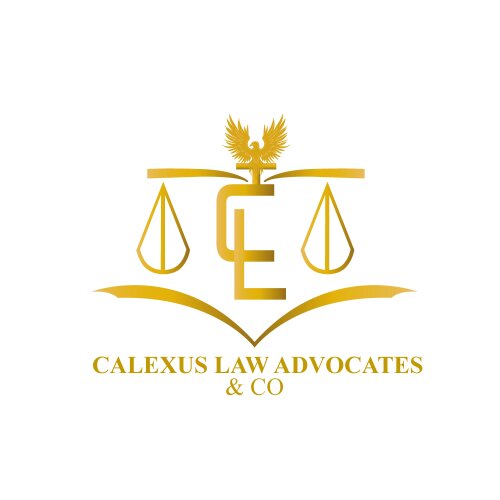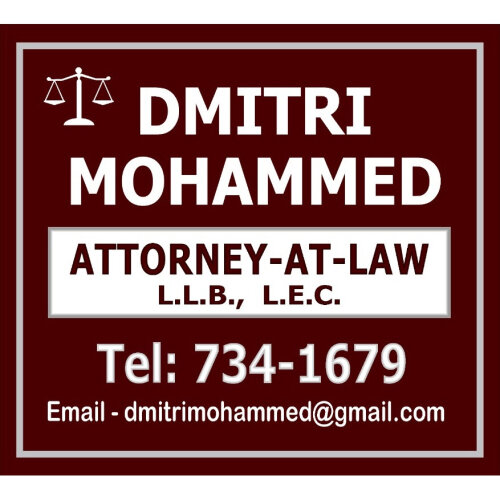Best Private Client Lawyers in Trinidad and Tobago
Share your needs with us, get contacted by law firms.
Free. Takes 2 min.
Or refine your search by selecting a city:
List of the best lawyers in Trinidad and Tobago
About Private Client Law in Trinidad and Tobago
Private Client law in Trinidad and Tobago refers to the area of legal practice that deals with the personal legal affairs of individuals and families. This includes wills and estate planning, trusts, administration of estates, probate proceedings, powers of attorney, guardianship, wealth management, and related matters. The goal is to help individuals manage their assets, plan for the future, protect their interests, and ensure that their wishes are respected after their passing.
Why You May Need a Lawyer
There are various situations where engaging a Private Client lawyer in Trinidad and Tobago is essential. Individuals often seek legal help for drafting or updating a will, setting up trusts for asset protection, navigating the probate process after the death of a loved one, managing inheritances, appointing powers of attorney, dealing with potential disputes among heirs, and ensuring proper tax and regulatory compliance for their estates. A lawyer provides valuable guidance, helps avoid costly mistakes, and ensures that all arrangements are legally valid and tailored to your personal needs.
Local Laws Overview
Private Client matters in Trinidad and Tobago are governed by several key statutes and regulations. The Wills and Probate Act outlines the requirements for valid wills and the process for estate administration. The Administration of Estates Ordinance covers intestacy rules, appointing administrators for deceased estates, and the distribution of assets where there is no will. The Trustee Ordinance and relevant case law set out the formation and operation of trusts. Local laws dictate inheritance rights, formalities for granting lasting powers of attorney, guardianship procedures for minors and incapacitated persons, and set forth the obligations of executors and administrators. Tax implications, though generally less complex than in some other jurisdictions, must also be considered when making estate plans.
Frequently Asked Questions
What is the difference between a will and a trust?
A will is a legal document stating how your assets will be distributed after your death, while a trust allows you to transfer property to a trustee to manage on behalf of beneficiaries, sometimes even during your lifetime.
Do I need a lawyer to make a will?
While it is possible to write your own will, a lawyer ensures that your wishes are clearly expressed and legally enforceable, reducing the risk of disputes or the will being invalidated.
What happens if someone dies without a will?
If a person dies intestate, meaning without a will, their property is distributed according to the laws of intestacy as set out in the Administration of Estates Ordinance.
How does probate work in Trinidad and Tobago?
Probate is the legal process of validating a will and authorizing the executor to administer the estate. An application must be filed at the High Court, and once granted, the executor can distribute assets as outlined in the will.
Are foreign wills recognized in Trinidad and Tobago?
Foreign wills can be recognized if they meet certain legal requirements, but specific procedures apply. It is advisable to consult a lawyer to confirm validity and facilitate the process.
Can I challenge the validity of a will?
Yes, wills can be challenged on grounds such as lack of testamentary capacity, undue influence, fraud, or improper execution. Legal advice should be sought if you suspect a will is invalid.
What is a power of attorney and why would I need one?
A power of attorney is a legal document authorizing someone to act on your behalf regarding financial or personal matters. It is essential for situations where you may become incapacitated or are unable to manage your affairs.
How are estate taxes handled in Trinidad and Tobago?
Currently, Trinidad and Tobago does not levy estate taxes or inheritance taxes. However, certain fees may be applicable during probate or property transfers.
What rights do spouses and children have under local inheritance laws?
Spouses and children have specific rights under intestacy rules and may be entitled to a share of the estate, especially in cases where there is no will. The precise distribution depends on individual circumstances.
How long does it take to settle an estate?
The duration depends on the complexity and size of the estate, whether there are disputes, and how quickly required documents are gathered. Simple estates may be resolved in a few months, while more complicated ones can take a year or longer.
Additional Resources
- The Probate Registry of the Supreme Court of Judicature, which provides forms and guidance for probate and administration procedures. - The Ministry of the Attorney General and Legal Affairs, which offers information on legal frameworks and public legal education. - The Law Association of Trinidad and Tobago, which can refer individuals to qualified private client lawyers. - Nonprofit organizations and advocacy groups that provide support and advice on inheritance rights, elder law, and estate planning.
Next Steps
If you require legal assistance with private client matters, begin by organizing your relevant documents, such as existing wills, property titles, or bank account information. Clearly outline your goals and concerns. Then, contact a reputable Private Client lawyer or law firm in Trinidad and Tobago. Many initial consultations can clarify your best options and the likely steps ahead. Consider seeking referrals from trusted sources or contacting the Law Association for a list of specialized practitioners. Taking prompt and informed action helps to ensure your interests and wishes are protected under local law.
Lawzana helps you find the best lawyers and law firms in Trinidad and Tobago through a curated and pre-screened list of qualified legal professionals. Our platform offers rankings and detailed profiles of attorneys and law firms, allowing you to compare based on practice areas, including Private Client, experience, and client feedback.
Each profile includes a description of the firm's areas of practice, client reviews, team members and partners, year of establishment, spoken languages, office locations, contact information, social media presence, and any published articles or resources. Most firms on our platform speak English and are experienced in both local and international legal matters.
Get a quote from top-rated law firms in Trinidad and Tobago — quickly, securely, and without unnecessary hassle.
Disclaimer:
The information provided on this page is for general informational purposes only and does not constitute legal advice. While we strive to ensure the accuracy and relevance of the content, legal information may change over time, and interpretations of the law can vary. You should always consult with a qualified legal professional for advice specific to your situation.
We disclaim all liability for actions taken or not taken based on the content of this page. If you believe any information is incorrect or outdated, please contact us, and we will review and update it where appropriate.
Browse private client law firms by service in Trinidad and Tobago
Trinidad and Tobago Attorneys in related practice areas.
Browse private client law firms by city in Trinidad and Tobago
Refine your search by selecting a city.













